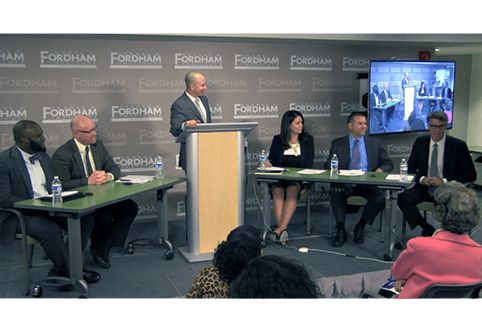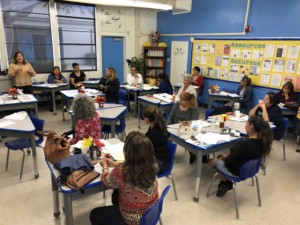Beyond Information: Engaging Parents (and Students) in Choosing Great Schools

The Thomas B. Fordham Institute recently partnered with GreatSchools and hosted “The Future of Parent Information.” GreatSchools CEO and founder Bill Jackson (@Bill_Jackson) kicked off the event with the premise that it’s not enough to just inform parents, but that we have a responsibility to engage parents and students.
Engaging all parents. Jackson cited data that shows that 75% of parents in the top income quartile will access the GreatSchools site, while only 25% of parents in the bottom quartile will. It’s not for lack of interest. As Jackson’s articulated and Education Trust tweeted:
.@Bill_Jackson: no parent we’ve ever met had low expectations for their children #ElevatingParents
— The Education Trust (@EdTrust) November 19, 2014
Engaging parents early. One of the important things is to engage parents early, often and in the daily context. Ultimately, “The most important relationship is between parent, child, teacher,” so we should build from there and encourage parents to think critically about the choices they are making from early on.
Let’s get back to a day when the community demands excellence of its schools in many ways, says @bill_jackson. Amen. #elevatingparents
— Kristina Saccone (@KristinaSaccone) November 19, 2014
Challenging questions. Jackson’s remarks were followed by a panel that addressed challenging questions and included Chad Aldis (Fordham’s VP for Ohio Policy and Advocacy), Chris Fullman (parent organizer from Wilmington, DE), Damon Gardenhire (Walton Family Foundation) and education strategist Caitlin Sharp (Double Line Partners). Questions for continued dialogue include:
- What do we know about how information influences families’ school choices?
- What new kinds of information is coming on the scene to help parents?
- Can we “crowd source” insights into schools to help parents find the right match?
- How do we reach the families who need the most support?
- How might we put more power in the hands of parents to define what quality is, and demand that their local schools provide that quality?
Pulling for accountability. A common theme in addressing these questions was one of accountability, but not in a traditional sense. Participants were probed, “How might we get to a world where accountability is driven with more of a pull mechanism?” This idea comes to life when we envision a day when parents crowd-source school feedback and are actively looking for school badges that have been earned for things like serving ELL students well, caring about the arts, scoring high on exams, involving parents, or credit recovery. Another idea was to replace Tupperware parties with “school choosing parties” to drive parental engagement.
How might we get to a world where accountability is driven in a pull fashion, asks @Bill_Jackson at #ElevatingParents
— Fordham Institute (@educationgadfly) November 19, 2014
Don’t forget the students. In addition to the need for a deeper dive into those questions, it is also time to acknowledge the role of students in decision making and support them accordingly. An American Enterprise Institute (AEI) paper that was just released suggests that by 8th grade, students and parents are partners in school decisions. According to the AIE paper, Better Data, Better Decisions: Informing School Choosers to Improve Education Markets, it turns out that 76% of families said parents and students would be equally involved in choosing a high school. Only 16% of respondents indicated mostly parents and only 8% mostly students. Are we communicating with students as if this were true?
Amidst such choices, the challenge and the opportunity is to augment what has traditionally been a simple provision of information to a process that deeply engages parents and students and offers crowd-sourced information, two-way conversations, and supportive environments. Such a process is at the heart of the quest to improve education in America. Watch the entire event:
More:




0 Comments
Leave a Comment
Your email address will not be published. All fields are required.